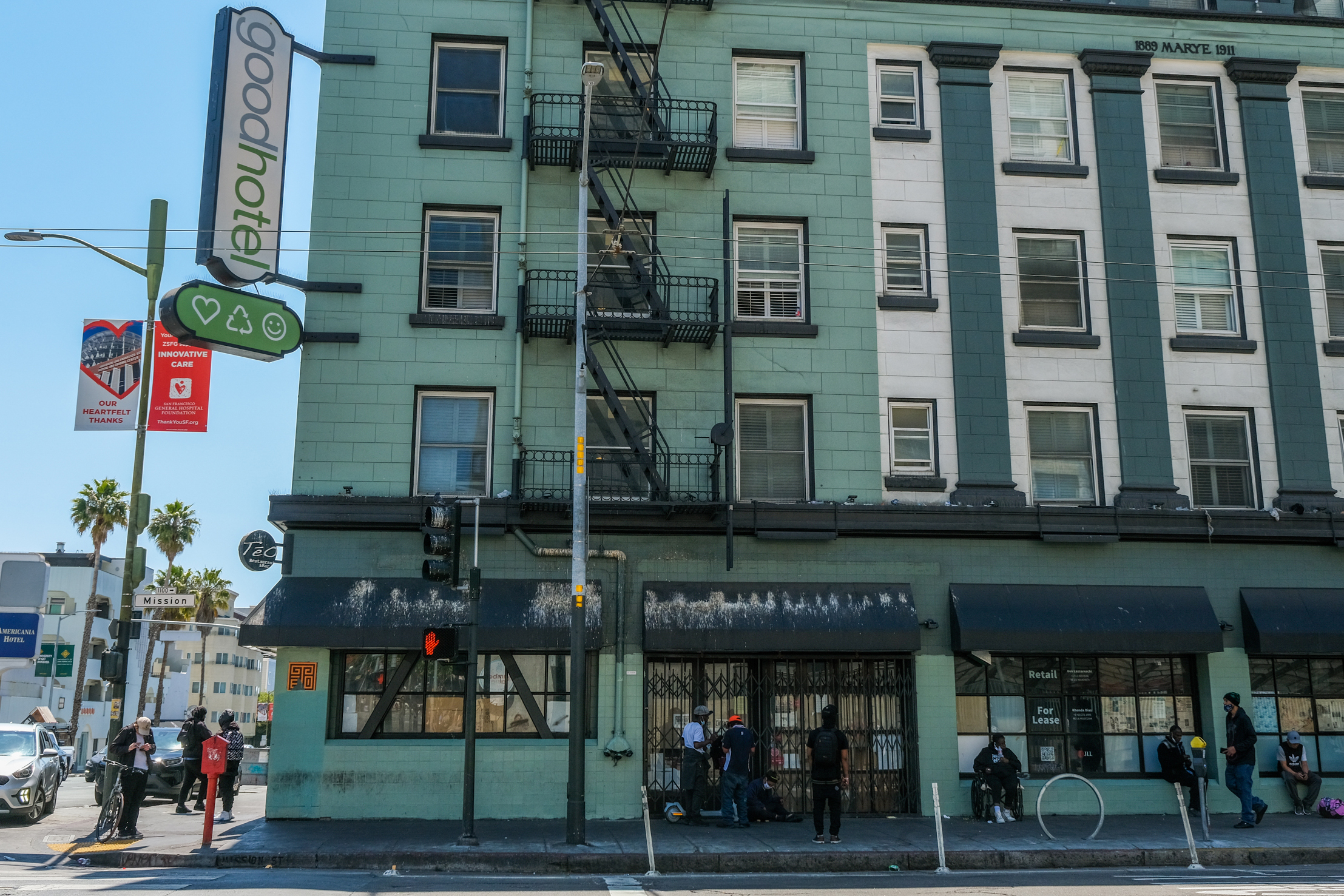The Board of Supervisors is considering an extension to the city’s shelter-in-place hotel program, a Covid-era measure that provided temporary housing for thousands of unsheltered and at-risk people in privately owned hotels.
The program, launched in April 2020, is currently scheduled to wind down by September. But a new ordinance, expected to be heard at the board’s Budget and Finance Committee on Wednesday, would extend the city’s lease on 11 of the hotels for up to a year. The extension of the program comes at an estimated cost of $19.2 million—most of which would be eligible for federal reimbursements, according to a budget analyst.
Mayor London Breed recently credited the program for staving off a seemingly inevitable increase in the city’s homeless population during the pandemic. Supervisor Hillary Ronen, who chairs the finance committee, questioned why the city hasn’t continued to place people in hotels while the federal government has pledged reimbursements.
“It feels to me like the [Department of Homelessness] is a little all over the place in terms of its strategy,” Ronen said. “I know they don’t want to release anyone back to the streets…But having some respite from the streets is better for the individuals and for the communities that they’re living in than nothing at all.”
The program has provided temporary shelter for more than 3,700 people across 25 hotels since its launch, and there are currently 726 people living at seven remaining shelter-in-place sites. Under the proposed extension, the city would extend leases at those seven remaining sites, and three other sites that have since been converted to non-congregate shelters. One other site, a Days Inn on Grove Street, is managed by the Department of Public Health.
The proposal to extend the program comes amid claims by several hotel owners that the shelter-in-place program caused extensive damage to their properties totaling in the millions. The Hotel Tilden and Hotel Union Square have filed claims demanding compensation for damage, and others have also threatened the city with legal action.
Supervisor Ahsha Safai, who also sits on the board’s finance committee, said that he wants to ensure that the city is protecting its financial interests in extending the program. He said he plans to propose that the hotels enforce a sober living policy as part of the contract amendments.
“If you’re not having people use drugs and alcohol, it’s less likely for them to be in a state where they might damage the property,” Safai said. “At the end of the day, the city has to protect its interests and can’t just write blank checks.”
City officials stated their intent to prevent people in the program from ending up back on the streets in July 2020. But to this point, more than 1,500 of the hotel guests have exited back to the streets, to a shelter, or to an unknown location.
The federal government has pledged to reimburse 100% of eligible program costs accrued up until July 1, and then 90% of the costs thereafter. The city’s Budget and Legislative Analyst estimates that 82% of the city’s expenditures on the program are eligible for reimbursement, though it must apply for the funds. To date, the city has applied for $259.4 million in reimbursement for shelter-in-place hotels, according to the Controller’s Office in May.
Many residents who live in neighborhoods around participating hotels have complained that street conditions have deteriorated as a result of the program, prompting the Department of Homelessness and Supportive Housing to launch an ambassador program through the nonprofit Five Keys. The ambassadors respond to conflicts around city homeless facilities in the Lower Nob Hill and SoMa neighborhoods.
“We’re really trying to take responsibility and work in partnership with the community to address their concerns,” said Emily Cohen, director of communications for the Department of Homelessness and Supportive Housing.
